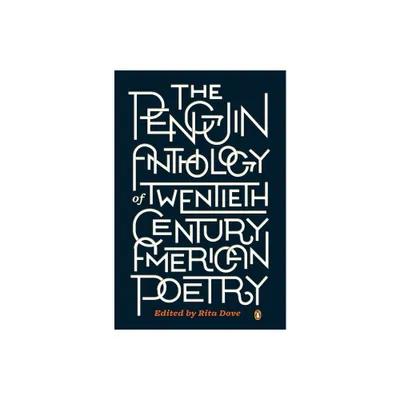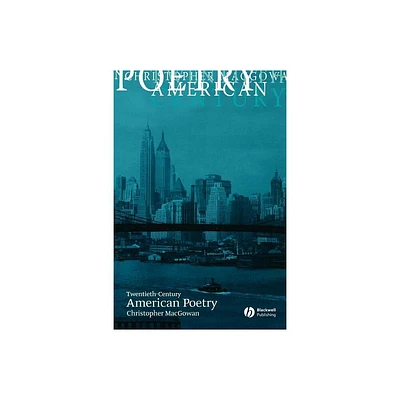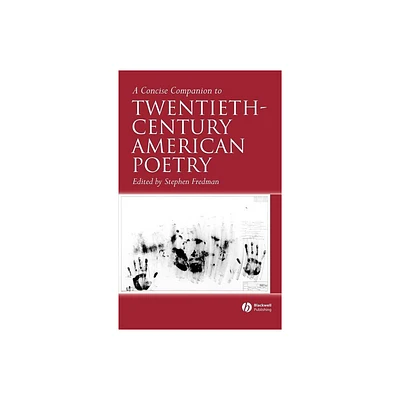Home
Poems Containing History: Twentieth-Century American Poetry's Engagement with the Past
Loading Inventory...
Barnes and Noble
Poems Containing History: Twentieth-Century American Poetry's Engagement with the Past
Current price: $142.00


Barnes and Noble
Poems Containing History: Twentieth-Century American Poetry's Engagement with the Past
Current price: $142.00
Loading Inventory...
Size: Hardcover
*Product Information may vary - to confirm product availability, pricing, and additional information please contact Barnes and Noble
Ezra Pound’s definition of an epic as “a poem containing history” raises questions: how can a poem “contain” history? And if it can, does it help us to think about history in ways that conventional historiography cannot? Poems Containing History: Twentieth-Century American Poetry’s Engagement with the Past, by Gary Grieve-Carlson, argues that twentieth-century American poetry has “contained” and helped its readers to think about history in a variety of provocative and powerful ways. Tracing the discussion of the relationship between poetry and history from Aristotle’s Poetics to Norman Mailer’s The Armiesof the Night and Hayden White’s Metahistory, the book shows that even as history evolves into a professional, academic discipline in the late nineteenth century, and as its practitioners emphasize the scientific aspects of their work and minimize its literary aspects, twentieth-century American poets continue to take history as the subject of their major poems. Sometimes they endorse the views of mainstream historians, as Stephen Vincent Benét does in John Brown’s Body, but more often they challenge them, as do Robert Penn Warren in Brother to Dragons, Ezra Pound in TheCantos, or Charles Olson in TheMaximus Poems. In Conquistador, Archibald MacLeish illustrates Aristotle’s claim that poetry tells more philosophical truths about the past than history does, while in Paterson, William Carlos Williams develops a Nietzschean suspicion of history’s value. Three major American poets—T. S. Eliot in Four Quartets, Hart Crane in TheBridge, and Carolyn Forché in The Angel of History—present different challenges to professional historiography’s assumption that the past is best understood in strictly material terms. Poems Containing History devotes chapters to each of these poets and offers a clear sense of the seriousness with which American poetry has engaged the past, as well as the great variety of those engagements.

















